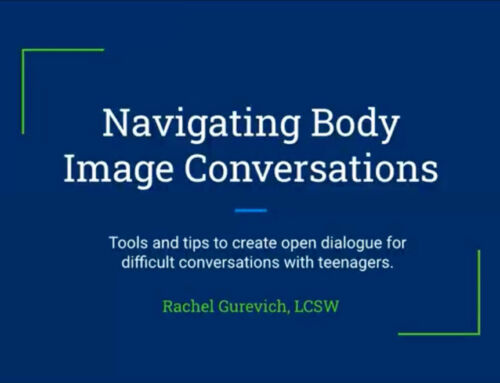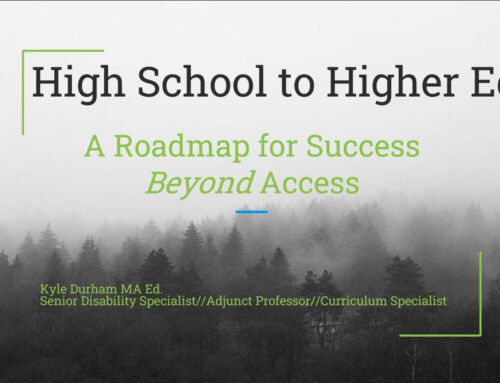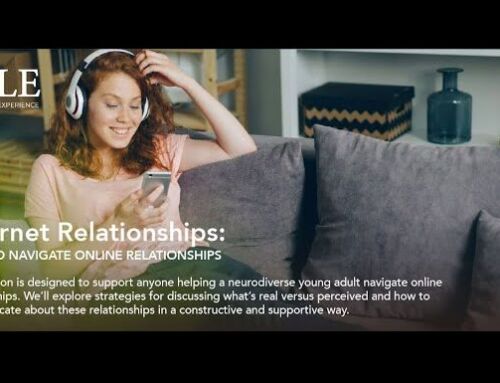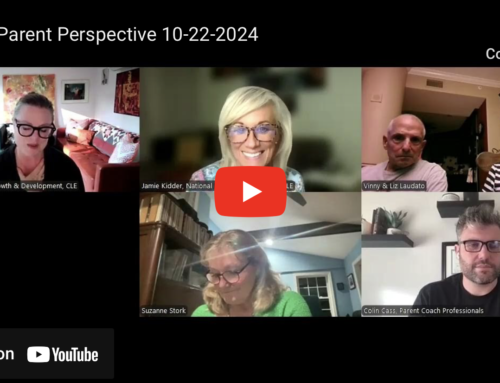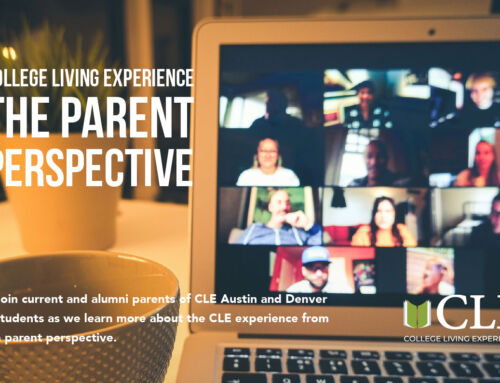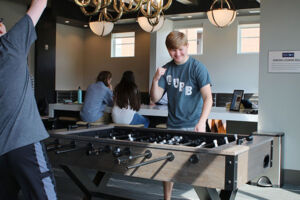 Navigating the journey that is college life is a challenging endeavor for many students. The freedom, the academic expectations and the pressure to fit in can be overwhelming. For neurodivergent students—those with autism spectrum disorder (ASD), nonverbal learning disorder (NVLD), dyslexia and other disabilities—these challenges are often magnified.
Navigating the journey that is college life is a challenging endeavor for many students. The freedom, the academic expectations and the pressure to fit in can be overwhelming. For neurodivergent students—those with autism spectrum disorder (ASD), nonverbal learning disorder (NVLD), dyslexia and other disabilities—these challenges are often magnified.
The struggles of neurodivergent college students are reflected in the disparity of graduation rates between students with disabilities and students without. The six-year graduation rate of students with disabilities at four-year colleges is 49.5%, compared to almost 68% for students without disabilities. Additional research from psychologist Susan W. White shows only 41% of students with disabilities enrolled in a four-year college will graduate with a bachelor’s degree.
Let’s delve into some of the primary obstacles students with disabilities often face transitioning from high school to institutions of higher learning:
The Unique Challenges of Neurodivergent Students in College
For many, college is seen as a launchpad to adulthood, filled with new experiences, friendships and personal growth. However, the very factors that make college exciting can also make it daunting, particularly for neurodivergent students. Their unique cognitive wiring, while a source of many strengths, can also introduce specific challenges in the conventional college setting.
Understanding Social Nuances
College isn’t just about studying. It’s also about building friendships, joining clubs, and networking. For those with ASD or NVLD, understanding social cues and nuances might not always come naturally. Potential misinterpretations can lead to feelings of isolation and frustration.
Executive Functioning Struggles
Organizing notes, managing time, sticking to schedules and other essential skills, known as executive functions, are often areas of difficulty for neurodivergent students. Traditional colleges, with their emphasis on self-directed study, can add additional triggers and make these challenges worse.
Inadequate Support
While colleges may offer some support for students with disabilities, the specific support functions don’t always cater specifically to the needs of the neurodivergent population. Generic accommodations may not address the unique challenges these students face.
According to research from Patrick Dwyer and colleagues from the University of California-Davis, neurodivergent students continue to face serious barriers and challenges on campus, despite seeking postsecondary education in increasing numbers.
Their research also concludes neurodivergent students often face certain barriers, including lack of awareness, stigma, discrimination and inflexible policies and practices, that make the process of getting support more difficult. For example, some colleges require students to provide extensive documentation of their disability, which can be costly, time-consuming and stressful.
Sensory Overload
College campuses are bustling environments. From crowded lecture halls to social gatherings, the constant stimulation can be overwhelming for individuals, especially those with ASD. Sensory sensitivities, such as heightened reactions to lights, sounds or physical sensations, can make certain campus environments nearly unbearable, affecting a student’s ability to concentrate or participate fully.
Unfortunately, some colleges also do not recognize sensory distress and distraction as valid reasons for accommodations, such as wearing headphones, using fidget toys or taking breaks.
Communication Barriers
For some neurodivergent individuals, articulating thoughts, feelings or needs effectively can be a struggle. Whether it’s misunderstanding figurative language, grappling with speech processing delays or simply finding the right words, these communication hurdles can lead to misinterpretations and missed opportunities for collaboration or connection.
Given these hurdles, it’s not surprising that many neurodivergent students find themselves rethinking their college choices. But it doesn’t have to be this way.
Turning the Ship Around with CLE
At CLE, we’ve worked with plenty of students who have gotten off to less-than-ideal starts at college. But, we believe that every setback is a setup for a comeback. Here are some things neurodivergent students can do to get back on the right track:
Acknowledge and Accept
Unfortunately, many college students with disabilities do not inform their schools and ask for accommodation. According to research from the National Center for Education Statistics (NCES), among students who said they had a disability while attending college, only 37% said they informed their school. At both four-year and two-year colleges, between 12% and 13% of students informed their college of current disabilities.
It’s crucial for students to accept that everyone’s journey is unique, and some students may need further assistance and support in recognizing that it’s OK to need support. Seeking help isn’t a sign of weakness… but rather one of strength and self-awareness.
Seek Specialized Help
If you’re still at a traditional college, seek out the disabilities office and advocate for yourself to get the support tailored to your needs. And if you’re considering a shift, know that CLE offers specialized academic, career and independent living services tailored for neurodivergent students.
Build Your Support System
Building a network of understanding friends, mentors and professionals is crucial. At CLE, we have a built-in community ready to understand and support you from day one.
Establish Routine
This is especially helpful for those struggling with executive functions. Having a set routine can bring about a sense of stability. At CLE, we offer executive functioning skill training to help our students master this vital area.
Reevaluate and Reset Goals
Understand that it’s perfectly normal and necessary to recalibrate. Maybe you need to adjust your course load or take a semester to focus on building skills. The path to independence isn’t always linear, so be sure to set realistic, personalized goals that will make that path easier to navigate.
The traditional college experience, while valuable for many, may not always cater to the unique needs of the neurodivergent community. It’s essential to recognize this early and take proactive steps to ensure success. At CLE, we believe in catching these bright, young minds before they become disheartened.
Our holistic approach ensures that our students not only excel academically but also grow socially, emotionally and professionally. If you’re looking for a college support system that truly understands and caters to your unique needs, CLE is ready to be your home away from home.

